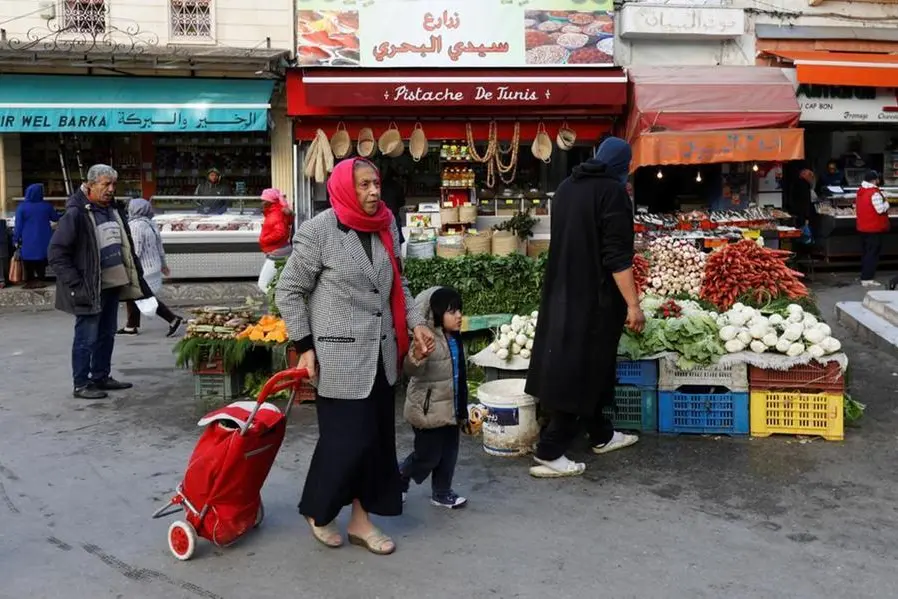PHOTO
TUNIS - Tunisia expects its economy to grow by 2.1% in 2024, up from 0.9% in 2023, and plans almost the same subsidies for fuel, electricity and food will raising taxes for banks, hotels and liquor firms, a bill on its budget showed on Tuesday.
The bill included no reference to an agreement with the International Monetary Fund (IMF).
Tunisia's President Kais Saied this year rejected what he called IMF 'diktats' saying they could lead to social protests, casting doubt on the IMF deal.
Tunisia last year reached a staff-level deal with the IMF for a $1.9 billion loan, but it has already missed key commitments and donors believe the state's finances are increasingly diverging from the figures the deal was based on.
The government said it aims to reduce the public wage bill from 14.4% of GDP in 2023 to 13.5% next year.
The country is struggling to fix it ailing public finances and aims to cut its fiscal deficit to 6.6% in 2024 from 7.7% in 2023 helped by the planned additional taxes.
A temporary tax of 4% on the profits of banks and insurance companies will be imposed in 2024 and 2025, raising the rates paid by banks to nearly 40%.
President Saied has long criticised private banks, saying that they make huge profits while they should be trying to help the economy in these delicate times.
Private banks are now the main lender to the government amid their inability to secure external loans.
Local experts have warned this borrowing threatens to cause liquidity scarcity and plunge the banking sector into a crisis.
The government's need for external loans is set to rise in 2024 to 16.4 billion dinars ($5.19 billion) from 10.5 billion in 2023.
Its foreign loans include an Algerian loan of $300 million, $400 million from the African Export-Import Bank and $500 million from Saudi Arabia.
The government said it seeks to obtain $3.2 billion in loans, without mentioning their sources.
($1 = 3.1668 Tunisian dinars)
(Reporting by Tarek Amara; editing by Alison Williams and Jason Neely)





















